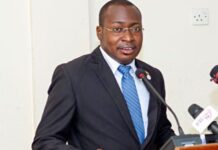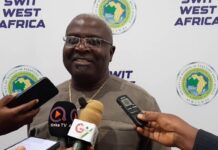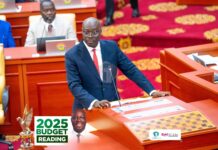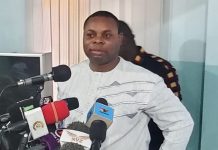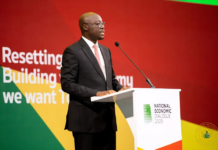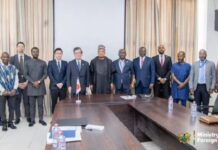
By Franklin CUDJOE
Yet, another boring but mind-boggling political tussle over the purchase of customised cars, 43 of them at nearly $10 million apparently for the offices of the current President, Vice-President and their wives.
We have heard contradictory statements from the previous and current administrations about whether there was prior agreement by both administrations for the outgoing administration to purchase these cars for the incoming government. While this matter unfolds, as it will, and end up being swept under the tag of political corruption, I am worried that we may not be learning any lessons about how to thoroughly deal with hints of political corruption even before it becomes obvious. This saga of 43 cars may be an opportunity though.
Earlier in the year, my colleagues at IMANI argued that because it costs the tax payer additional financial resources in successfully prosecuting alleged corrupt officials, the best way to avoid waste and corruption is to start the battle at the heart of the Presidency. Remember the agreement or decision to purchase 43 custom-made cars was made at the Presidency.
My IMANI colleagues asserted that, it is evident, however from all the legal debate that has ensued since the inauguration of the new President that new laws would be required to put the idea of the Special Prosecutor into practice. After such laws are passed, more time is required to recruit, staff, and resource the personnel in the new entity. Should even the new Prosecutors decide to use the fast-track courts in their pursuit of those who have embezzled or mismanaged public funds, due process and expensive lawyers can drag cases out for months. In short, it is unlikely that the Special Prosecutor shall bear any serious anti-corruption fruits for at least 18 months.
On top of these sobering facts, Ghanaians also have to contend with the limitations of criminal prosecutions as a tool in fighting corruption. Whilst, criminal prosecutions are a great deterrence, they can only happen after the fact, and often the lost money is never recouped. The political costs of a failed prosecution can have a chilling effect on other prosecutions, especially in our situation where investigations are rarely thorough because of institutional defects.
At any rate, the Executive, or to be blunt, the President, does not control the Courts. In fact, we are now even appearing to ask that he distances himself from the investigation and prosecution of corruption in this country. With greater independence of the process comes a lowering not just of control but also accountability. To a limited extent, this paradox is also evident in that other major plank of anti-corruption work: procurement reform. An independent procurement system is one in which the government’s ability to change things can be slowed by the demands of due process and the sheer technical burden of implementing new processes and technologies to enhance quality and accountability even as the public procurement authority is granted greater independence from the Executive.
A consideration of all these facts has led IMANI to the belief that the quickest and most effective way for the new government to stamp its feet and assert its anti-corruption credentials is to start the process at the Presidency, the heart of the government, where the President has near absolute control over outcomes and consequences.
Even though the new President and his government made the egregious and costly mistake of ballooning political appointments and expanding the bill for the entire Office of Government Machinery, it is comforting to learn that the presidential ban on purchasing new vehicles by any government agency still holds four months after it was imposed. We remain confident that the current President shall keep the ban in place until 2019. On that hopeful note, the President and the government should not accept the 43 new custom-made cars at all. After all, they say they have no knowledge of the purchase. Charity would have begun at home (the presidency) in fighting waste.
Franklin Cudjoe is President of IMANI, a Ghanaian think tank.


